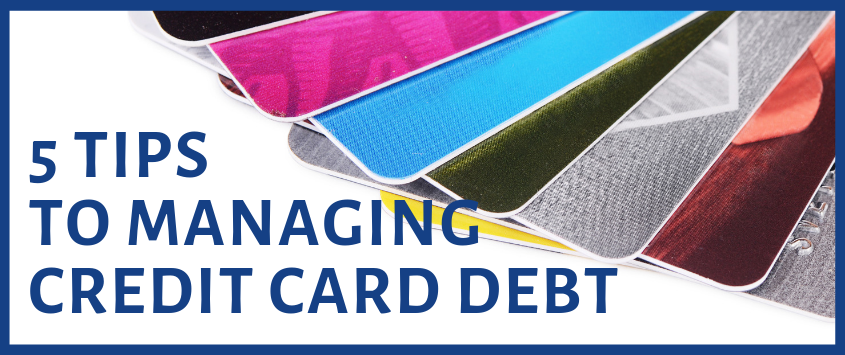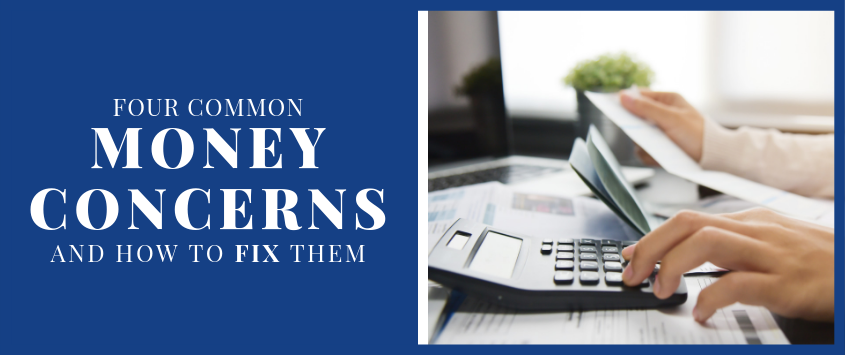5 Tips to Managing Credit Card Debt
Using credit cards can be a good thing when they’re not over-used, and if they’re managed wisely. However, relying on credit to maintain a beyond-your-means lifestyle or even as a way of making ends meet can be a slippery slope. Why? Because if you lose sight of how much credit you’re carrying, rack up large credit balances or pay lots in finance charges each month, you’re actually doing your finances more harm than good. Let’s take a look at five things you can do to be sure you’re managing your credit card debt wisely.
Track Your Debt
Especially if you have more than two credit cards, make sure you know how many accounts you have open that you’re paying on each month, the total balance of each credit card account and the due dates and payment due each month. Simply seeing these totals may not only make you aware of how much credit card debt you’re carrying but also provide you with an incentive to pay it off.
Pay off Small Balances First
Some experts say that the smartest way to manage your monthly credit card payments is by targeting the smallest balances first. The reasoning is that by eliminating the smallest balances first, you will quickly free up more cash monthly to pay on the larger balances, which are probably costing you more in finance charges.
Lower Your Finance Charges
Monthly finance charges on credit card debt usually consist of an interest rate which is multiplied against your balance. These charges may start out low but usually increase over time or when your balance reaches a certain level. Knowing which of your credit cards costs you the most in finance charges will tell you two things: 1) Which card to use least, and 2) Which card company you should negotiate with for a lower rate. Some credit card companies will lower their interest rate if you simply call and ask for – or negotiate – a lower rate.
Use Credit Cards Sparingly
The best way to eliminate monthly finance charges is to pay cash and don’t use your credit cards. When you do use credit, however, keep the amount you spend small (less than $500 per month) and pay off the balance immediately when it comes due. Following this tip will not only stop you from drowning in credit card debt but also help to build your credit score.
Raise Your Credit Score
Your level of credit card debt and your on-time payments have a significant impact on your credit score. Your credit score is the main factor used by banks and other lending institutions to make decisions about lending for home and auto purchases. By keeping your level of credit card debt low – or even at zero – your credit score will show banks and mortgage companies that you are responsibly using your credit cards and wisely managing your debt.
An excellent resource to help you manage your credit card debt is an experienced accountant like those at Donohoo Accounting Service. Schedule your credit card debt consultation with Donohoo by calling 513-528-3982 or email us today.
Check us out on Facebook, Twitter and LinkedIn for our latest updates!










